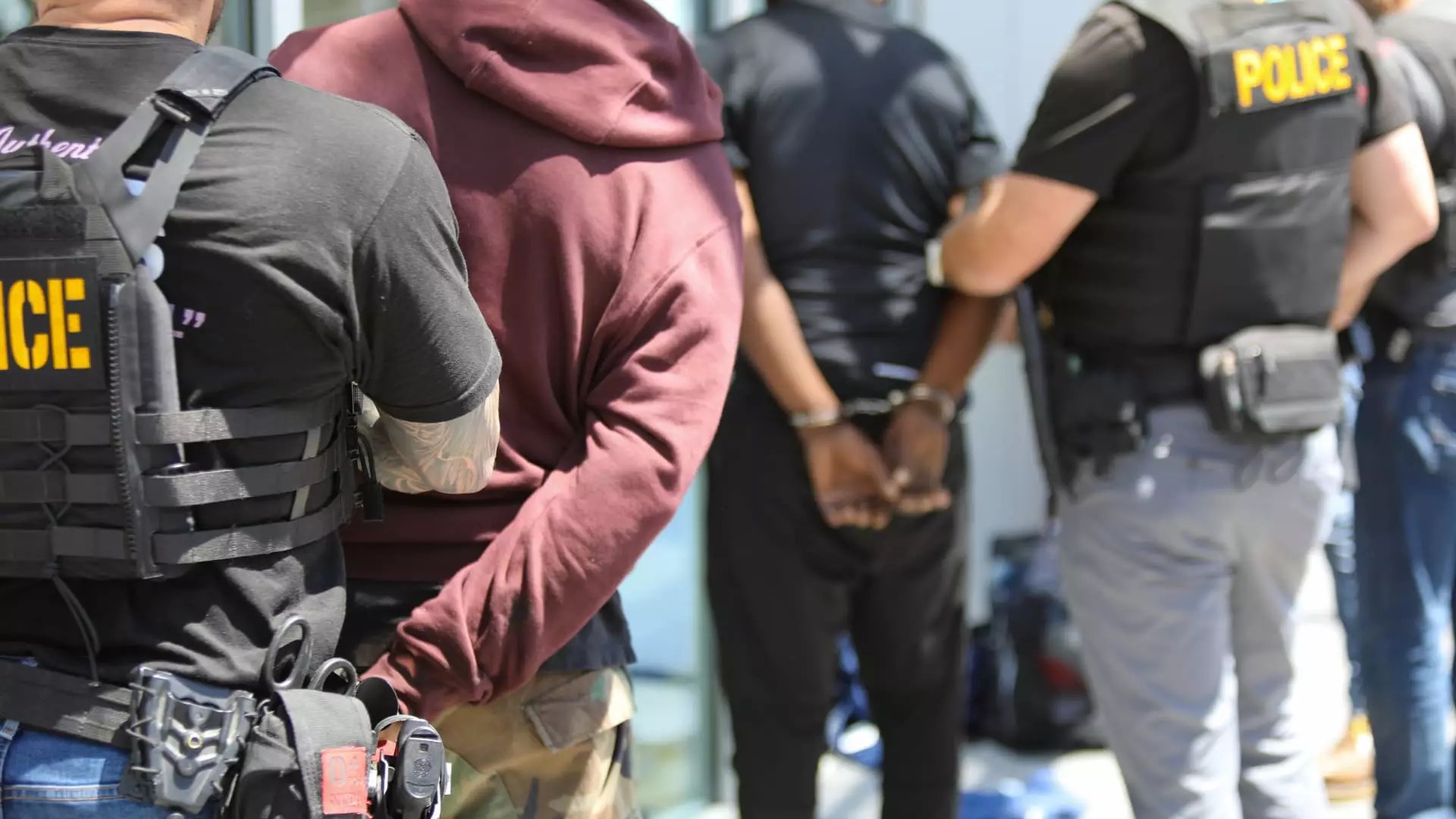In recent years, retailers across the United States have witnessed a staggering 450% increase in organized retail crime (ORC), a criminal phenomenon where groups collaborate to steal merchandise to resell it for profit. This rampage of theft has become so pervasive that it is now threatening the very fabric of the retail sector. The latest statistics reveal that in 2023 alone, incidents of shoplifting surged to approximately 93% more than in 2019, creating an urgent need for a concerted response from law enforcement and governmental entities.
While our nation has long managed issues of petty theft, the rise of sophisticated organized crime rings has left many retailers struggling to cope with escalating losses that have now reached a 90% increase. These numbers aren’t mere statistics; they represent real consequences felt by businesses and consumers alike. Retailers like Home Depot, Target, and Walgreens have had to contend with the growing reality that the stolen merchandise is often just the tip of the iceberg in terms of economic fallout.
The Groundbreaking Blitz Against Retail Theft
Last week’s nationwide crackdown is lauded as a revolutionary step in addressing the staggering challenge of retail theft. Spearheaded by Cook County’s regional organized crime task force, agencies from 28 states joined forces in what can only be described as a watershed moment in policing retail crimes. This unprecedented effort has already led to hundreds of arrests, demonstrating that determined, cooperative efforts can yield measurable outcomes against criminal organizations that have long exploited loopholes in the law.
Cook County Sheriff Tom Dart aptly described the operation as a focused campaign designed to send a clear message to would-be thieves: law enforcement is serious about curtailing these crimes. Dart’s assertion that “when you give specific focus to a crime, it reverberates” reflects a strategy that could revolutionize how local agencies tackle rampant crime in their communities. It’s validation that targeted operations can be effective in deterring criminal behavior, provided that there is sustained commitment and coordination.
Legislative Backing and the Role of Prosecutors
Equally noteworthy has been the shift in local prosecutorial policies spearheaded by Cook County State’s Attorney Eileen O’Neill Burke. Upon taking office, Burke vowed to pursue felony retail theft charges more aggressively than her predecessor, lowering the threshold needed for felony charges from $1,000 to $300 in value or even the first offense if the suspect has prior felony convictions. Her commitment demonstrates a progressive approach that marries legislation with enforcement—an essential strategy if we want long-term solutions that genuinely alter crime patterns.
Burke’s office has since filed 1,450 felony retail theft cases, a staggering 450% increase in prosecutorial action compared to previous years. This surge signifies a paradigm shift not just in how we penalize criminals, but also in how we perceive the role of district attorneys in maintaining commercial order. The political will to institute such changes indicates a growing recognition that unchecked criminal behavior has far-reaching consequences, both economically and socially.
The Need for Community Involvement and Collaboration
However, enforcement alone won’t solve this crisis. Collaboration among retailers, law enforcement, and government entities is imperative. The involvement of retail giants—like Ulta Beauty and Walgreens—demonstrates that private sectors bear a vital responsibility in finding solutions to thwart criminal activities amidst their premises. The proactive stance taken by these companies to partner with law enforcement shows an emerging narrative: combating retail theft is not solely a law enforcement problem but a community issue, requiring a unified response.
As the operation concludes and law enforcement agencies compile their data, one can’t help but hope that the lessons learned will pave the way for future strategies against organized retail crime. Retailers like Walgreens and Home Depot have already voiced their commitment to advocate for stronger laws and collaborative measures to tackle the ongoing crises.
The statistics are alarming, and the need for action has never been more pressing. In the face of an escalating crisis, the communities we live in must not only hold criminals accountable but also support legislative changes that strengthen our response to retail crime. This coordinated effort—if utilized effectively—could serve as a blueprint for other cities facing similar challenges, and perhaps, in the end, protect the economic sanctity and safety of our neighborhoods.


Leave a Reply